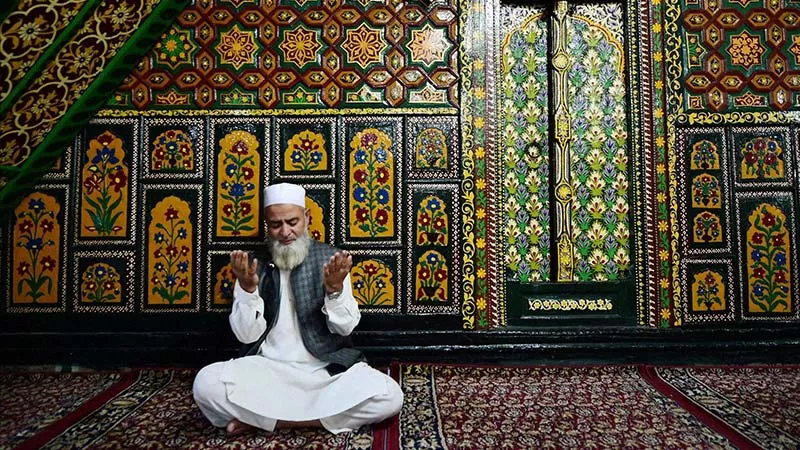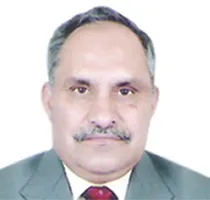I am not quite sure if Prime Minister Narendra Modi was aware of former US President Theodore Roosevelt’s famous foreign policy dictum “speak softly, and carry a big stick,” when he spoke from the ramparts of Red Fort about Pakistan Occupied Kashmir (PoK) and Balochistan. Talking tough and talking big are two very different things and it really is difficult to talk tough when you are busy emasculating your own armed forces. Despite what babus and politicians may wish for, and Modi and his immediate team actually believe, neither the BSF nor the CRPF can win you wars.
In fact, history tells us that they haven’t even been able to win us peace within the country. Isn’t that why the Army is deployed in Kashmir and the North East? We also must face the brutal fact thatour Armed Forces are barely in a condition to hold their own against an attack against us, especially if it is undertaken jointly by both our hostile neighbours, as some visualise, let alone launch an offensive to liberate PoK or whatever.
However, Modi is certainly well within his rights to condemn wholesale human rights abuses on the part of the Pakistan Army in Balochistan, PoK and Gilgit-Baltistan, or Northern Areas as it was earlier known. Not only is there a complete absence of governance and democracy in those areas, but the local populations have been subjected to the worst kind of violence by the state including the use of aircraft and attack helicopters. In fact, he has done well to highlight an issue that the international community has been ignoring for decades. He has also exposed the blatant hypocrisy and duplicity of the Pakistani Government and the Organisation of Islamic Cooperation that constantly condemn the manner in which our Security Forces have handled the troubles in Kashmir Valley, while ignoring Pakistan’s suppression and inhuman treatment of its minorities.
However, moral support and building international opinion against the Pakistani establishment to force them to change tack is one thing, talk of liberation of any of these territories, as some ultra-nationalists, including a few military veterans, seem to suggest, is not only a dangerous proposition but downright laughable.
The fact of the matter is that the turbulence in the Kashmir Valley, in which Pakistan has certainly played the part of an agent provocateur, has reached the stage it has, thanks to the acts of commission and omission on the part of the Central and State Governments over the past seven decades, especially since 1988. We are also saddled with an opposition that is blatantly hypocritical and increasingly irrelevant. When former Union Home Minister P. Chidambaram blames the governing parties for the ongoing troubles in the Kashmir Valley and former J&K Chief Minister Omar Abdullah wants a judicial commission to inquire into the use of excessive force by the military, they are being disingenuous and forget that it is their parties that rigged the State election in 1987 in the first place that led to the birth of militancy there.
If accountability is what they wish to promote, which is indeed the need of the hour, then it is the leadership of the Congress and the National Conference that need to face the music. They should be tried for gross human right violations for having forced youth into militancy, destroyed innocent lives, including those of the security forces who have been martyred or injured there, and set this country back decades thanks to their political machinations and unwillingness to surrender power. Even in the unlikely event that such a course of action was to be adopted, it would not help us solve the Kashmir imbroglio, despite closure that accountability does bring in its wake for those affected. For that we have little choice but to think out of the box.
This is particularly important because none of the stakeholders have any explanation for the current spate of violence in the Valley or any ideas of how to tackle it. This includes the Hurriyat, separatist groups and Pakistan as well, though they benefit from it in the short run. While accusations fly thick and fast and conspiracy theories abound, the issue of a definitive political solution which is more than mere sloganeering is absent. As is usual in such circumstances, the status quo suits all stakeholders less the local population, more so the youth, which is desperate for change.
It is in this context recent articles by Mohan Guruswamy in Scroll, and by General H. S. Panag in Newslaundry.com make some excellent suggestions for the way forward. Guruswamy has pointed out that historically the erstwhile Kingdom of Jammu and Kashmir was formed as “a composite state of disparate regions, religions and ethnicities.. This is reflected in the present day demographics.”
There is no reason therefore to suggest that the existing three divisions of the State cannot be divided into two States of Kashmir and Jammu and the Union Territory of Ladakh. This would ensure that each of these regions has the representative Government they wish for with greater autonomy than at present. It would also address the issue of developmental funds being equitably distributed among all ethnic and religious groups unlike the present situation where the Kashmir Valley gobbles up most of the funds given by the Central Government. It would also tackle the inherent fear of the Kashmiri Muslim community of being overwhelmed by outsiders. This administrative action in no way hampers our claims to POK or Gilgit-Baltistan, though that has relevance only as a bargaining chip as neither side is in any position to change the status quo. If we are to put the consequences of partition behind us, both India and Pakistan have little option but to discuss ways and means that can ensure the existing LOC can be turned into an international boundary, which may in time become an open border.
As for Kashmir Valley itself, General Panag’s suggestions that AFSPA be lifted from the Valley except for a 15 km belt along the LoC and for the bulk of the Rashtriya Rifles to be shifted into the counter-infiltration role makes eminent sense. Certainly, the ongoing actions of the Northern Army Commander, General Hooda, to strengthen the counter insurgency grid by inducting Uniform Force only complicate matters.The need is for reduction of forces not their enhancement as is being envisaged.
One issue that must however also be simultaneously pursued is to initiate actions to curtail Wahhabi influence that has seeped into the Valley over the past few decades. This requires that all Imams in the villages who are not of Kashmiri origin be sent back to their respective states and Saudi funding be completely stopped. The other issue that also needs to be resolved is that of the Kashmiri Pandits who have been forced out due to ethnic cleansing in the past.
All of this is imminently doable if the Prime Minister takes the initiative to cut the proverbial Gordian knot. Such an action would define his tenure more than talking about Balochistan or PoK. But, this would require that Modi shed the perception that has led some to believe that he is more concerned with brand building abroad, which he believes, like Nehru did at least prior to 1962, can be promoted by sheer bluster and talk.
This commentary originally appeared in The Pioneer.
The views expressed above belong to the author(s). ORF research and analyses now available on Telegram! Click here to access our curated content — blogs, longforms and interviews.




 PREV
PREV


